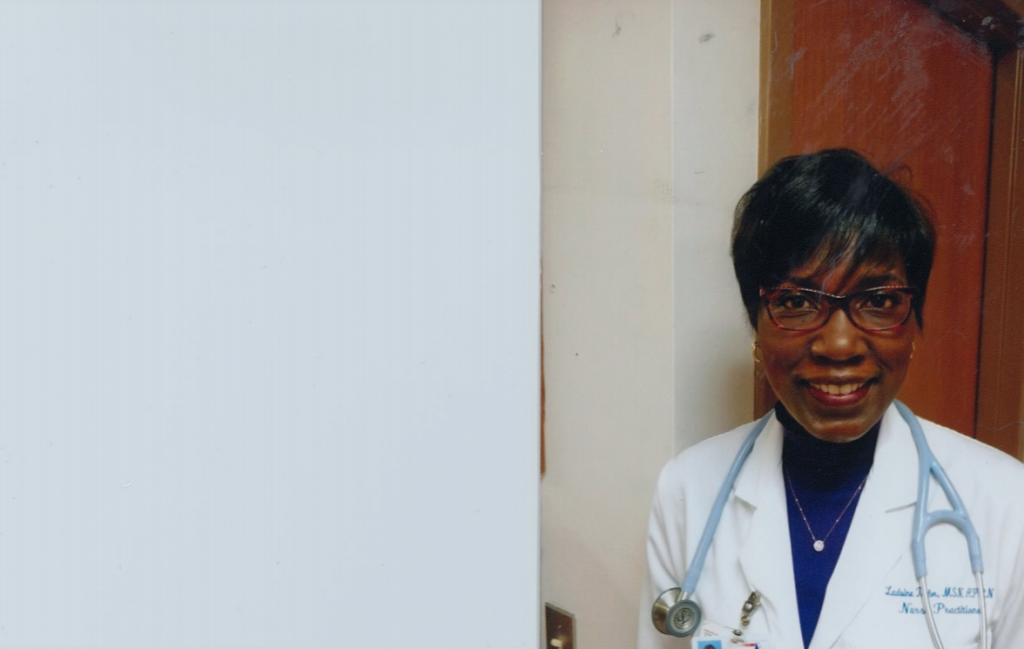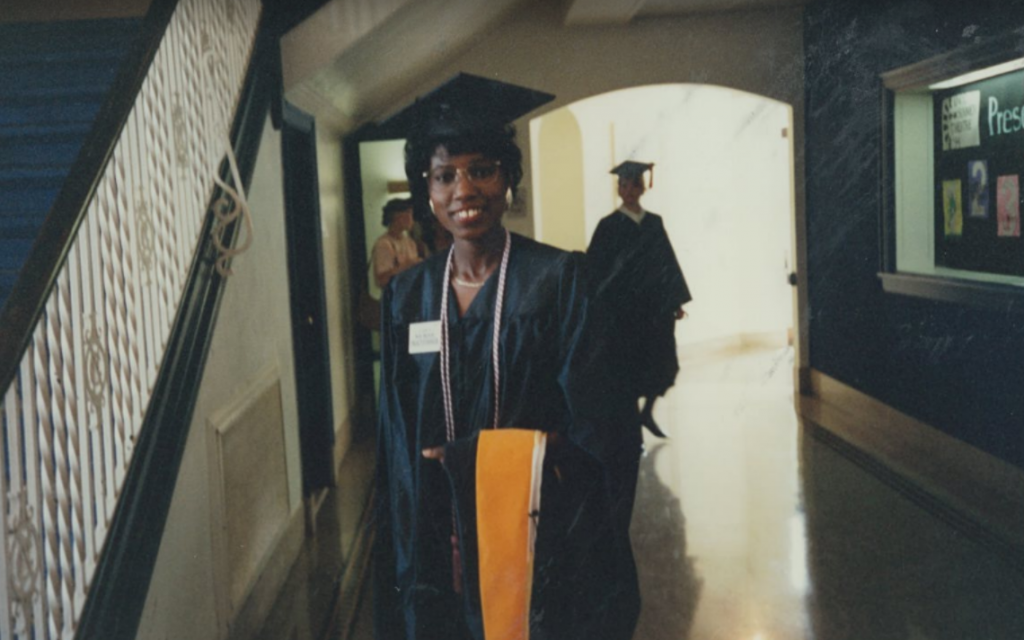
Black History Month Spotlight: Ladsine Taylor
As a registered nurse, Ladsine Taylor watched older patients seek care at the medical center she worked at – only for their concerns to seemingly be ignored by their own doctors.
She saw health care providers spend little time with geriatric patients and prescribe medication without giving much consideration for the unique needs that older adults have.
Taylor was frustrated.
She wanted to learn more about how aging affects people, but she thought she had to earn a graduate degree in a field other than nursing to do that. She took courses in epidemiology, health education, and public health, but the classes didn’t help.
“I became exhausted with the search and stopped because I was spending money and getting nowhere. I prayed to God for guidance,” Taylor said. “One day I was talking with my best friend and nursing colleague who was enrolled in the UNCG nursing administration program. She invited me to sit in on one of her evening classes.”
Taylor had a brief conversation that day with Dr. Virginia Newbern, who was a preeminent gerontology researcher and a faculty member in the UNC Greensboro School of Nursing. Taylor left the class feeling like UNCG was the right fit for her.

In 1993, Taylor became the first African American student to graduate from UNCG’s gerontological nurse practitioner (GNP) program. She recalled sitting in her first class, Pathophysiology for Advanced Practice Nursing, and realizing she was the only Black student in the program.
“I wanted to be able to help older adults to stay well and healthy, so they could maintain their dignity and live in their homes. I wanted to help teach others on how to care for older adult patients,” she said. “I shared my excitement with friends, relatives, and colleagues about my decision to study gerontological nursing.
“There were very few people that I recalled being in this field in the early 1990s. I was surprised at the responses I received. People told me I was crazy for going into this field because ‘old people are depressing.’”
In the nearly three decades since graduating from UNCG, Taylor has treated veterans with chronic diseases – which may include post-traumatic stress disorder – at the W.G. (Bill) Hefner VA Medical Center in Salisbury. She was the first Black nurse practitioner to work at the VA community living center.
Taylor was elected last year as secretary of the board of directors for the Gerontological Advanced Practice Nurses Association (GAPNA), which is the leading professional organization that represents advanced practice nurses who care for older adults.
“For the past 27 years, she would periodically give me a call and we would catch up. I have enjoyed being her mentor and friend over all these years,” said Dr. Laurie Kennedy-Malone, a School of Nursing professor who met Taylor when she started as a graduate student. They’ve since worked together on four books about managing the care of older adults.
“I am proud of her accomplishments and know that she has served as a role model to many others with whom she works. I believe she will make a difference serving on the GAPNA board.”
Growing up in Lumberton, in the southeastern part of North Carolina, Taylor said she thought she’d end up being a teacher like her parents. But she loved spending time with older adults who shared their wisdom with her.
Since Taylor lived less than a mile from her school, her mother gave her the responsibility of making sure her grandfather ate lunch and took his medication every day. She made the 10-minute walk home to care for him during her lunch breaks.
“I thought nothing of it and enjoyed it,” Taylor said. “I remember after school, rather than going home and doing my homework as my parents instructed me to, I would visit my neighbors for a while and then return home before my parents returned home from school.
“I felt very privileged to care for my senior neighbors, and this was gratifying for me, whether I did something small or large.”
While Taylor comes from a family of educators, ministers, and business owners, her mother encouraged her to become a nurse. She already had an interest in learning why some people aged gracefully while others experienced physical challenges.
Over the years, Taylor has coined and copyrighted a motto that speaks to her unconventional nursing career: “An opportunity is the avenue to expand your possibilities and make it a reality.”
“I encourage others to take advantage of opportunities,” she said.
Story by Alex Abrams, School of Nursing